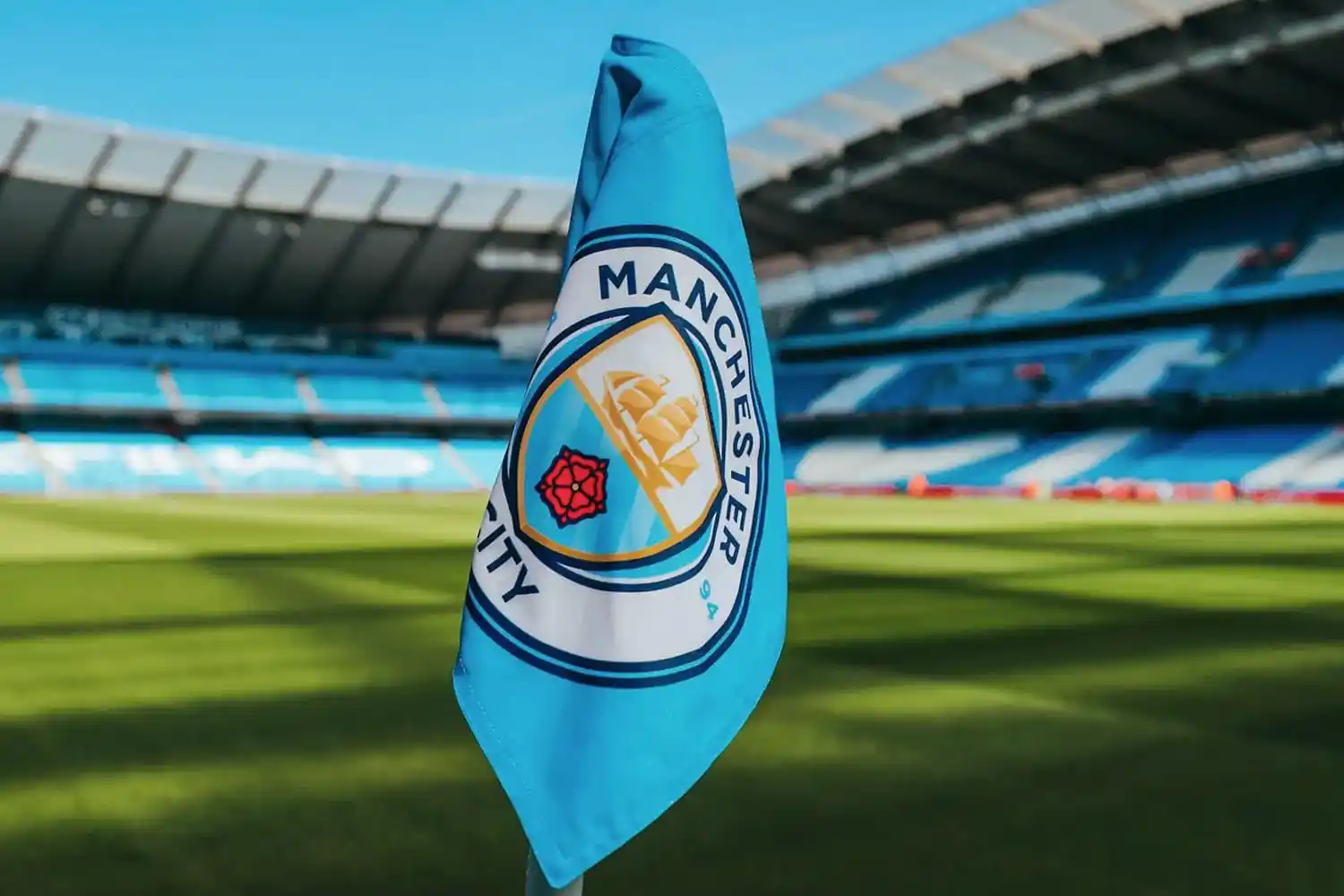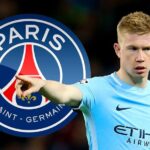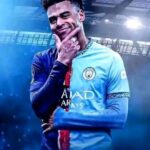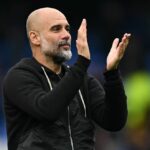Manchester City are willing to break the bank and fork out €120 million to sign PSG attacking sensation

Manchester City’s reported €120 million pursuit of PSG’s teenage sensation Désiré Doué represents more than just another high-profile transfer rumor—it potentially signals a shifting of the power dynamics in European football’s elite attacking talent market. As the summer transfer window approaches, this developing story embodies the modern football economy’s willingness to invest unprecedented sums in youth talent with transformative potential.
The 19-year-old French forward has emerged as one of football’s most coveted young prospects, showcasing a rare combination of technical brilliance, tactical maturity, and consistent end product that belies his tender age. This analysis explores the strategic implications of this potential mega-transfer, examines why Manchester City believes Doué is worth breaking the bank for, and evaluates what this move could mean for all parties involved.
The Rise of Désiré Doué: From Rennes Prodigy to PSG Star
Doué’s trajectory has been nothing short of meteoric. Emerging from the famed Stade Rennais academy system—an institution that has produced talents such as Eduardo Camavinga, Ousmane Dembélé, and Mathys Tel—Doué quickly established himself as perhaps the academy’s brightest jewel. His breakthrough at Rennes featured performances of remarkable maturity, combining technical flair with tactical intelligence well beyond his years.
PSG’s acquisition of Doué last summer initially appeared to be a long-term investment, but the young Frenchman has accelerated his development timeline dramatically. After a period of adaptation under Luis Enrique, Doué’s second-half season explosion has transformed him from promising talent to essential contributor. As PSG navigated life after Kylian Mbappé’s departure, Doué seized his opportunity, demonstrating the ability to influence matches at the highest level of European competition.
What separates Doué from other emerging talents is his remarkable versatility coupled with match-defining effectiveness. Although naturally gravitating toward the left wing, where his combination of close control, acceleration, and creative vision is most devastating, he has displayed the tactical intelligence to operate effectively across the forward line. This positional fluidity, combined with his end product, has helped PSG maintain attacking potency in the post-Mbappé era.
Why Manchester City Are Willing to Break the Bank
Manchester City’s reported willingness to commit €120 million to secure Doué’s signature reflects both Pep Guardiola’s specific tactical requirements and the club’s broader strategic approach to squad building. Several factors make this investment potentially justifiable from City’s perspective:
Strategic Squad Evolution
City’s pursuit represents a proactive approach to squad evolution. Despite their continued domestic dominance, Guardiola has consistently advocated for regular squad refreshment to maintain competitive hunger and tactical flexibility. With key attacking figures like Kevin De Bruyne and Bernardo Silva approaching or entering their thirties, Doué represents a long-term cornerstone around which City could build their next attacking iteration.
The current City blueprint relies heavily on technical perfection, positional fluidity, and the ability to maintain possession while creating superiority in crucial zones. Doué’s technical security, decision-making under pressure, and creative instincts make him an ideal stylistic fit for Guardiola’s demanding system.
The Guardiola Effect on Young Talent
Guardiola’s track record of elevating young attacking talent cannot be overlooked when analyzing this potential transfer. From his work with Lionel Messi at Barcelona to Phil Foden at City, the Spanish tactician has demonstrated a unique ability to refine raw potential into world-class performance. For Doué, the opportunity to develop under Guardiola’s guidance represents perhaps the most valuable component of any potential move.
The Catalan manager’s tactical approach, emphasizing positional play, intelligent movement, and technical perfection, appears tailor-made for Doué’s skill set. His ability to operate in tight spaces, combined with exceptional decision-making in the final third, suggests he could thrive in City’s intricate attacking patterns.
Competitive Market Dynamics
The eye-watering €120 million figure must also be understood within the context of an increasingly competitive market for elite young talent. With traditional rivals like Real Madrid, Barcelona, and Manchester United also reportedly monitoring Doué, City’s aggressive valuation may represent a strategic attempt to end the competition before it truly begins.
Football’s inflationary transfer environment continues to redefine what constitutes “value” in the market. When assessed through this lens—combining Doué’s demonstrated ability, future potential, commercial value, and remaining years of peak performance—the figure becomes more justifiable from City’s perspective.
Tactical Integration: How Doué Would Fit at the Etihad
Should this transfer materialize, the tactical integration of Doué into Guardiola’s existing system presents a fascinating prospect. The Frenchman’s versatility offers multiple deployment options:
Wide Playmaker Role
The most natural fit would see Doué operating from the left wing, where his combination of dribbling ability, creative passing, and increasing goal threat would add another dimension to City’s attack. His comfort in half-spaces and ability to combine in tight areas mirrors the profiles of current City wide players like Jack Grealish and Jeremy Doku, but with potentially higher ceiling outcomes.
Doué’s progressive ball-carrying—he ranks among Europe’s elite in successful dribbles and progressive carries per 90 minutes—would add a direct, defense-destabilizing element that could be particularly valuable against deep defensive blocks that City regularly face in the Premier League.
Central Creative Hub
Alternatively, Guardiola might envision Doué as a longer-term solution in central creative areas. His spatial awareness, passing range, and press resistance hint at the potential to develop into a central playmaker in the mold of David Silva or Kevin De Bruyne. This development path would require tactical refinement but could ultimately yield the highest return on City’s substantial investment.
The central deployment would leverage Doué’s emerging ability to dictate tempo and progression while placing him in positions to deliver the final ball more frequently—capitalizing on his exceptional vision and execution in the final third.
False Nine Potential
The third possibility—perhaps the most intriguing from a tactical perspective—would be Doué’s development into a false nine, similar to how Guardiola has utilized Phil Foden and Bernardo Silva in central striking positions. Doué’s close control, intelligent movement between lines, and improving finishing suggest he could thrive in this role, creating a fluid attacking front that would be exceptionally difficult to defend against.
This versatility would provide Guardiola with tactical flexibility to adapt his approach based on opposition, competition context, and available personnel—a cornerstone of City’s success under the Spanish manager.
PSG’s Stance: Building Post-Mbappé Future Around Doué
From PSG’s perspective, the reported €120 million offer presents a complex dilemma. Having positioned Doué as a centerpiece of their post-Mbappé rebuild, any sale would represent a significant strategic reversal. Several factors suggest PSG will strongly resist City’s advances:
Strategic Importance to Project
After years of building teams around established superstars like Neymar, Messi, and Mbappé, PSG’s current project under Luis Enrique appears more focused on sustainable team building and developing younger talent. Doué embodies this philosophical shift, representing both immediate quality and long-term potential—precisely the profile PSG need to establish a new identity.
The psychological impact of selling such a player, particularly to a Champions League rival, could undermine confidence in the club’s strategic direction. Having invested significantly in acquiring Doué from Rennes, a quick sale—regardless of profit margin—would signal instability in planning.
Sporting Impact
Doué’s second-half season emergence as a decisive contributor has elevated him from future prospect to present cornerstone. His performances in high-leverage situations have demonstrated a mental fortitude and competitive maturity that complement his technical excellence. Replacing these qualities, even with substantial financial resources, would prove challenging in the current market.
French Football Politics
As French football’s standard-bearer, PSG face unique pressures to retain and develop domestic talent. Selling one of France’s brightest young stars to a foreign competitor could generate significant criticism from supporters and media alike, particularly given the club’s Qatari ownership’s expressed commitment to elevating French football’s global standing.
With Doué already breaking into the French national team setup and potentially set to feature prominently in upcoming international tournaments, his presence at PSG carries symbolic importance beyond pure sporting contributions.
Market Implications: Setting New Benchmarks
The proposed €120 million valuation for a 19-year-old with less than a full season of elite performance at PSG would establish new market benchmarks for young talent. While this figure falls short of the highest transfer fees ever paid (Neymar’s €222 million and Mbappé’s €180 million moves to PSG), it would represent one of the largest investments ever made in a teenager.
This valuation reflects several market realities:
Youth Premium
The football transfer market increasingly applies substantial premiums for elite young talent, reflecting both potential performance value and financial considerations. A player of Doué’s age offers potentially a decade or more of peak performance, along with significant resale value protection—factors that justify higher initial investment from an accounting perspective.
Position-Specific Scarcity
Creative attackers who combine dribbling ability, passing creativity, and goal threat remain football’s most scarce and valuable commodity. Doué’s demonstrated ability to influence matches in multiple attacking phases amplifies his market value beyond that of more specialized players.
Competition Factor
When multiple elite clubs target the same prospect, valuations naturally inflate. If City are indeed preparing such an offer, it likely reflects their awareness of broader market interest in the player and a determination to present PSG with a proposition too substantial to dismiss outright.
Fan Perspectives: Mixed Reactions
The proposed transfer has generated predictably diverse reactions among the fanbases of both clubs:
Manchester City Supporters
For City supporters, the potential acquisition of Doué represents an exciting statement of intent. Having established domestic dominance, the club’s continued pursuit of Europe’s most coveted young talent signals ambition to maintain their competitive advantage long-term. However, some fans express concerns about such substantial investment in a player with relatively limited top-level experience.
The question of opportunity cost also features prominently in fan discussions—specifically whether such resources might be better allocated across multiple positions rather than concentrated in one spectacular acquisition.
PSG Supporters
Among PSG’s fanbase, reports of City’s interest have generated concern and defensiveness. Having endured Mbappé’s departure and the end of the previous galáctico era, supporters had begun embracing the club’s apparent pivot toward a more sustainable model built around emerging talents like Doué.
The prospect of losing him so quickly after his breakthrough threatens to undermine faith in this new direction. Many supporters point to PSG’s strong financial position and argue that selling Doué, regardless of fee, would represent unnecessary capitulation to market forces rather than a financial necessity.
Financial Fair Play Considerations
Any transfer of this magnitude inevitably raises questions regarding Financial Fair Play (FFP) compliance. For Manchester City, coming off recent challenges to their financial practices, such a substantial investment would require careful balance sheet management.
City’s model of player trading has evolved in recent years, with the club generating significant revenue through the sales of academy products and squad players. This more balanced approach to recruitment has helped maintain FFP compliance while still allowing for periodic landmark signings.
For PSG, the €120 million windfall would bolster their own FFP position, potentially creating flexibility for multiple strategic acquisitions. However, replacing Doué’s quality and potential would likely require reinvestment of most proceeds, limiting the net financial benefit.
The Broader Context: Youth Development Philosophies
This potential transfer narrative reflects broader philosophical questions about youth development in elite football. Both clubs have invested substantially in academy infrastructure, but their approaches to talent integration differ significantly:
City’s Balance
Under Guardiola, City have established a balanced approach that combines strategic market acquisitions with carefully managed academy promotion. Phil Foden’s gradual integration into the first team demonstrates Guardiola’s patience in developing homegrown talent, while signings like Erling Haaland and Rodri reflect the club’s willingness to pay premium prices for specific profiles that address tactical needs.
Doué would represent a hybrid of these approaches—an external acquisition, but one young enough to be shaped according to Guardiola’s specific requirements.
PSG’s Evolving Model
PSG’s history with youth development has been more complicated. The club’s Paris-region academy has produced exceptional talents, but many (like Kingsley Coman, Christopher Nkunku, and Mike Maignan) achieved their greatest success after leaving the club. Recent shifts suggest a greater commitment to developing and retaining young talent, with Doué as a centerpiece of this evolution.
Selling Doué now would raise legitimate questions about the sincerity and sustainability of this developmental philosophy.
Professional Perspectives: What Players and Managers Say
Former players and managers have offered revealing perspectives on Doué’s potential and the proposed transfer:
Thierry Henry, current French U21 coach, has described Doué as “a rare combination of technical brilliance and tactical intelligence,” noting that “players with his level of decision-making at such a young age don’t come along often.”
Former Manchester City captain Vincent Kompany observed that “Guardiola looks for specific intelligence in his attacking players—the ability to understand space, to make the right decision consistently. From what I’ve seen, Doué has those qualities in abundance.”
Meanwhile, former PSG sporting director Leonardo cautioned that “building consistently successful teams requires keeping your best young talents. When you find a player who embraces the pressure of representing Paris and performs at this level, you should do everything possible to build around him.”
Conclusion: A Defining Transfer for Multiple Stakeholders
As this transfer saga unfolds in the coming months, it will reveal much about the strategic priorities and market power of two of Europe’s wealthiest clubs. For Manchester City, securing Doué would represent a statement of continued footballing ambition and financial might, while potentially solving succession planning for their attacking unit.
For PSG, their response to City’s advances will demonstrate the sincerity of their claimed philosophical shift toward building around young talent rather than established stars. Rejecting even such a substantial offer would signal genuine commitment to this new direction.
For football more broadly, the resolution of this potential transfer will establish new benchmarks for the valuation of elite young talent and provide insight into the evolving power dynamics among Europe’s financial elite.
Most importantly, for Désiré Doué himself, the coming months represent a pivotal moment in his career trajectory. The decision he faces—whether to continue developing at PSG or test himself under Guardiola’s guidance at City—will significantly influence his development path and ultimate ceiling as one of football’s most promising talents.
As the summer transfer window approaches, all eyes will be on this developing story, with its resolution carrying significant implications for all parties involved and the broader football ecosystem.















